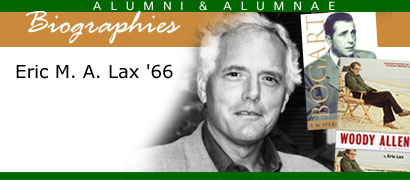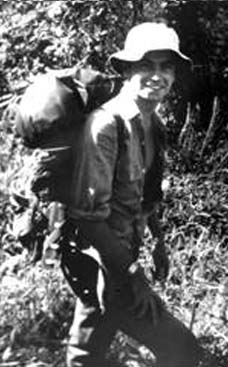
Even the one big negative associated with Allen in the public mind — his breakup with Mia Farrow and subsequent marriage to Farrow’s adopted daughter, Soon-Yi Previn — is something he shrugged off a long time ago. Unprompted, he brings up the subject with Lax, conflating the people who criticized the age difference between his and Mariel Hemingway’s characters in “Manhattan” with those who were up in arms about him and Soon-Yi. “Speaking of Soon-Yi,” Allen says, “it is ironic that my marriage to her, which was seen by many as so irrational, to me is the one relationship in my life that worked.” I don’t blame Lax for not pursuing that subject further, since “Conversations With Woody Allen” is meant to be about the movies. But I do wish that the author had occasionally been less James Lipton-ingratiating and more Mike Wallace-aggressive in his line of questioning. There is, for instance, the unignorable fact that Allen is not as culturally relevant as he once was. There was a period, from “Annie Hall” (1977) to “Hannah and Her Sisters” (1986), when the release of a new Woody Allen movie was an event — when Allen, as esoterically a New York-Jewish figure as he was, was verily plugged into the zeitgeist. What happened? Why is this no longer so? And how on earth did it happen in the first place? Film Historian and writer Eric Lax served as a Peace Corps Volunteer in Micronesia in the 1960's.
Micronesia RPCV Eric Lax publishes "Conversations With Woody Allen"
Woody Talks
Review by DAVID KAMP
Published: November 18, 2007
Not only does Woody Allen profess not to care one whit about his legacy as a filmmaker; he’s also fashioned some choice Woodyisms on the topic. Here’s one: “I’m a firm believer that when you’re dead, naming a street after you doesn’t help your metabolism.” Here’s another: “Rather than live on in the hearts and minds of my fellow man, I’d prefer to live on in my apartment.”
Point taken, maestro. This is the Woody we’ve come to know well: the godless, affectless, clarinet-tootling, awards-ceremony-shunning workaholic who will give neither himself nor his audience the satisfaction of sitting back and taking pleasure in his achievements. (The working title of his most acclaimed film, “Annie Hall,” was “Anhedonia,” meaning the inability to experience pleasure.)
Would it be churlish, though, to suggest that Allen is being a tad disingenuous? For if he really were indifferent to his legacy, then why would he sanction the publication of a hefty book called “Conversations With Woody Allen,” and why would he have sat for hours and hours of new interviews with Eric Lax, the man who wrote a quasi-authorized biography of him 16 years ago?
This is a legacy-burnishing project, plain and simple. Allen is a big Orson Welles fan — he tells Lax he considers “Citizen Kane” the greatest American film ever made — and “Conversations With Woody Allen” is essentially the Woodman’s chance to do his version of “This Is Orson Welles,” a magnificent book (published in 1992) that collected years of talk between the orotund “Kane” auteur and his interlocutor-protégé, Peter Bogdanovich. Lax is well positioned to play the Bogdanovich role: he first met Allen in 1971, when he interviewed the then fledgling director for an abortive New York Times Magazine profile, and has since spent a significant chunk of his adulthood in Allen’s company, sometimes on set, sometimes in the intimacy of his subject’s screening room or apartment.
“Conversations” reveals, happily, an Allen who’s game to range freely over his oeuvre. We learn that his favorites of his own films are “The Purple Rose of Cairo,” “Match Point” and “Husbands and Wives” (the last one a bit of a surprise), with “Stardust Memories” and “Zelig” ranking a notch below. Sometimes Allen’s assessments are bracingly contrarian. He expresses bafflement over the high regard in which “Annie Hall” and “Manhattan” continue to be held (“People really latched on to ‘Manhattan’ in a way that I thought was irrational,” he says) and makes a strong case for “Manhattan Murder Mystery,” his underappreciated 1993 reunion picture with Diane Keaton. In other moments, no less fascinating, he borders on the delusional. He can’t fathom, for example, how “Hollywood Ending,” a patchy, forgettable effort from 2002, “was not thought of as a first-rate, extraordinary comedy.”
In his introduction, Lax promises his book will offer “a clear view” of Allen’s transformation “from novice to one of the world’s most acclaimed filmmakers.” And it is indeed startling to witness the Woody of 1973, on the eve of the release of his mock-futurist romp “Sleeper,” getting giddy over positive advance notices from Scholastic and Seventeen magazines. (Lax claims Allen stopped reading reviews after “Annie Hall.”) It’s also telling to discover how much the younger Allen sought the approval of Gordon Willis, his cinematographer from “Annie Hall” through “Purple Rose.” Willis, late of Francis Coppola’s first two “Godfather” pictures, was arguably the bigger deal in filmmaking circles when the two men began their collaboration. When he told Allen during the making of “Annie Hall” that there was no rule against letting characters wander in and out of the frame while they talked, the director, thus emboldened, embraced this approach and turned it into a stylistic trademark.
Yet for all the measurable ways in which Allen has gone from callow neophyte to seasoned pro, Woody-the-person seems never to have changed much. Lax’s interviews are arranged not chronologically but according to broad categories related to the filmmaking process — for example, “The Idea,” “Writing It,” “Directing,” “Editing.” So even when Lax jump-cuts from 1973 to 1987 to 1989 to 2005 in the “Directing” chapter, there’s no palpable change in voice, tenor or outlook. Allen evidently emerged from Flatbush fully formed, prepackaged with abundant self-confidence and enduring obsessions with Dixieland jazz, Freudian analysis, Knicks basketball and ladies’ bosoms.
This makes for a book that’s plenty entertaining as a flip-through read but ultimately lacking in drama. “This Is Orson Welles” benefited from the tragic dimensions of its subject’s life: Welles’s early success as a boy wonder, his bitter rejection by Hollywood, his peripatetic later existence, his reduced circumstances, his unfulfilled dreams. Allen, on the other hand, just keeps hitching up his corduroys and going about his business. He hews to the same cyclical filmmaking schedule he’s been on forever, churns out a picture a year, and, if he’s lucky, the movie turns out half-decent. Or as Allen puts it, “I’d like to make a great film provided it doesn’t conflict with my dinner reservation.”
Even the one big negative associated with Allen in the public mind — his breakup with Mia Farrow and subsequent marriage to Farrow’s adopted daughter, Soon-Yi Previn — is something he shrugged off a long time ago. Unprompted, he brings up the subject with Lax, conflating the people who criticized the age difference between his and Mariel Hemingway’s characters in “Manhattan” with those who were up in arms about him and Soon-Yi. “Speaking of Soon-Yi,” Allen says, “it is ironic that my marriage to her, which was seen by many as so irrational, to me is the one relationship in my life that worked.”
I don’t blame Lax for not pursuing that subject further, since “Conversations With Woody Allen” is meant to be about the movies. But I do wish that the author had occasionally been less James Lipton-ingratiating and more Mike Wallace-aggressive in his line of questioning. There is, for instance, the unignorable fact that Allen is not as culturally relevant as he once was. There was a period, from “Annie Hall” (1977) to “Hannah and Her Sisters” (1986), when the release of a new Woody Allen movie was an event — when Allen, as esoterically a New York-Jewish figure as he was, was verily plugged into the zeitgeist. What happened? Why is this no longer so? And how on earth did it happen in the first place?
Given Allen’s penchant for brutal self-critique, I doubt he would take offense at such questions. But Lax never raises them. The closest we get, very late in the book, is when Allen, in a January 2000 sit-down, takes issue with the notion, put forth by the critic Richard Schickel, that his audience left him at some point. No, no, no, Allen argues: “It was that I left them; they didn’t leave me.” Eminently sane analysis or Norma Desmond-style sophistry? And which party was it, then, audience or Woody, that initiated the 2005 reconciliation that was the critically and commercially successful “Match Point”? I guess those are questions for another conversation.
One area where Allen unequivocally did leave his audience behind is in print. From the late ’60s through the ’70s, he wrote enough humorous stories and essays to fill three wonderful collections, “Getting Even,” “Without Feathers” and “Side Effects.” Like many an impressionable young fan, I read and reread these books so often — rife with genre parodies, absurdist pensées and flamboyantly prolix S. J. Perelman homages — that their contents became committed to memory. “Her figure described a set of parabolas that could cause cardiac arrest in a yak”: those are words from a 1971 Sam Spade sendup called “Mr. Big,” and I just summoned them as automatically as if they were the lyrics to “Happy Birthday.”
Alas, Allen abandoned print humor in the ’80s. Then, around the end of the last decade, he decided to give it a go again, submitting material anew to The New Yorker, where most of his earlier print work had first appeared. He’s kept at it, and “Mere Anarchy” collects the pieces he’s written in this second phase of his literary life. Meanwhile, the earlier three collections have been combined into an anthology called “The Insanity Defense,” now out in paperback. I’ll say it again: for someone so unconcerned with his legacy, Allen sure is taking up a lot of shelf space.
“Mere Anarchy” isn’t a full return to the glory days. The Perelmanisms are sometimes laid on too thick (“The heady conflation of lilac Pinaud and stale White Owls subverted my hypothalamus”), and there’s nothing on the level of “The Kugelmass Episode,” his flawless short story from “Side Effects” about a bald City College professor who, via a magician’s cabinet, is transported into the novel “Madame Bovary.” Still, it’s good to find Allen redevoted to a form — the silly short, or “casual,” in New Yorker parlance — that few besides him and Perelman have mastered.
“Above the Law, Below the Box Springs” is a soberly presented piece of crime journalism in the detail-laden, “In Cold Blood” vein: “Homer Pugh stands 5-8 in his stocking feet, which he keeps in a large duffel bag along with his actual feet.” “How Deadly Your Taste Buds, My Sweet” is an espionage potboiler based on a real news report of a white truffle that sold for six figures at auction. In it, a femme fatale announces with urgency, “A network of gourmands originating in Istanbul and frantic to shave it over their fettuccine has infiltrated our borders.”
It may not be fashionable to say so, least of all in Woody Allen’s house, but the man, when he’s on form, is as capable as ever of delivering pleasure.
David Kamp is a contributing editor for Vanity Fair.













